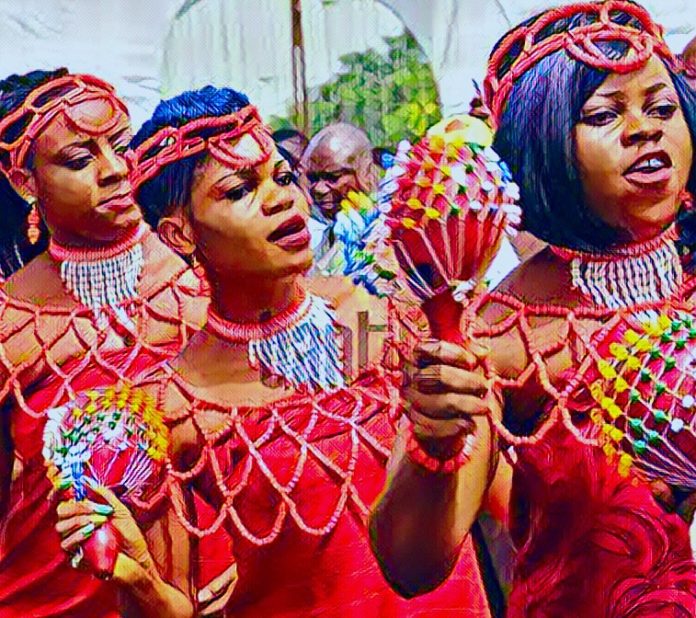KEY POINTS
-
Nigerian cultural practices are deeply rooted in respect and unity.
-
Traditional ceremonies and proverbs remain vital in daily life.
-
Family values and festivals still shape modern Nigerian society.
Nigeria is a nation endowed with significant cultural diversity, inhabited by several ethnic groups, each possessing unique customs that have endured through the ages. Notwithstanding swift modernity, certain traditional practices persist as fundamental to Nigerian society, influencing social interactions and community identity in the 21st century. Presented here are five cultural practices that remain profoundly relevant in contemporary society.
1. Reverence for seniors and authority figures
Reverence for elders is a fundamental principle of Nigerian culture among all ethnicities. Elders are viewed as custodians of wisdom, experience, and communal ideals, and their perspectives hold significant influence in familial and community affairs. This regard is manifested through formal salutations, soliciting input on significant decisions, and venerating elders at ceremonies. In contemporary Nigeria, this practice is essential as it promotes societal cohesion and establishes a mechanism for conflict resolution. In vibrant metropolitan settings, younger generations seek counsel and approval from elders, acknowledging their position as guardians of tradition and moral authority.
2. Conventional festivals and masquerades
Traditional festivals and masquerades remain integral to Nigerian cultural life. These festivals are abundant in music, dancing, vibrant costumes, and spiritual significance, serving as potent celebrations of communal identity and tradition. Masquerades, as observed in the Yoruba Egungun, Igbo Mmanwu, and Efik Ekpe traditions, symbolize ancestral spirits and strengthen the spiritual connection between the living and their ancestors. These celebrations not only reinforce social ties but also draw tourism and foster cultural pride. Festivals like as the Osun-Osogbo Festival, the New Yam Festival, and the Argungu Fishing Festival exemplify the enduring vitality of cultural traditions in modern Nigeria.
3. Collective living and extended kinship networks
Notwithstanding increasing urbanization and the emergence of nuclear family structures, Nigeria’s community living and extended family system continue to be essential. Families frequently encompass several generations and relatives outside the immediate household, thereby establishing robust social support networks. This framework functions as an informal welfare system, offering emotional, financial, and caregiving assistance, particularly in contexts where governmental social safety nets are inadequate. Residing near extended family members fosters social bonding and strengthens collective responsibility. In these familial structures, elders maintain authority, directing younger members and resolving conflicts.
4. Matrimonial customs and rituals
In Nigeria, marriage transcends a mere personal relationship, encompassing the merger of families and communities, hence rendering traditional marriage ceremonies profoundly significant. These celebrations feature intricate traditions that differ among ethnic groups but often highlight family participation, reverence, and societal affirmation. They publicly assert the connection among families and guarantee communal involvement and endorsement. The Yoruba traditional wedding is characterized by symbolic gift exchanges and unique ethnic dress, whereas the Igbo marriage entails bride price negotiations and celebrations that honor both families. The Hausa culture possesses elaborate ceremonial customs that integrate cultural and religious components. These matrimonial customs remain pertinent as they strengthen familial bonds and cultural identity.
5. Oral narration and sayings
Oral storytelling and the utilization of proverbs are essential cultural activities that safeguard Nigeria’s history, values, and wisdom. Elders transmit information, cultural teachings, and society standards to younger generations through storytelling. Proverbs encapsulate intricate concepts into memorable expressions that instruct, influence, and motivate. This oral tradition continues to exert influence on daily communication, education, and community cohesion. Folktales featuring the astute tortoise remain widely disseminated, while proverbs serve to underscore morals or societal criticism. The adaptability of oral traditions has enabled their emergence in radio, literature, and many media, hence assuring their persistence in contemporary Nigerian culture.
Conclusion
Amidst swift social and technical transformations, Nigeria’s abundant cultural history continues to significantly influence the identity and social dynamics of its populace. The enduring significance of reverence for elders, traditional festivals, communal living, matrimonial traditions, and oral storytelling illustrates how culture can offer stability, direction, and a sense of belonging. These rituals connect generations, promoting togetherness and resilience. As Nigeria progresses, it will be imperative to preserve and celebrate these cultural practices to sustain a robust link to its history while embracing the future.



